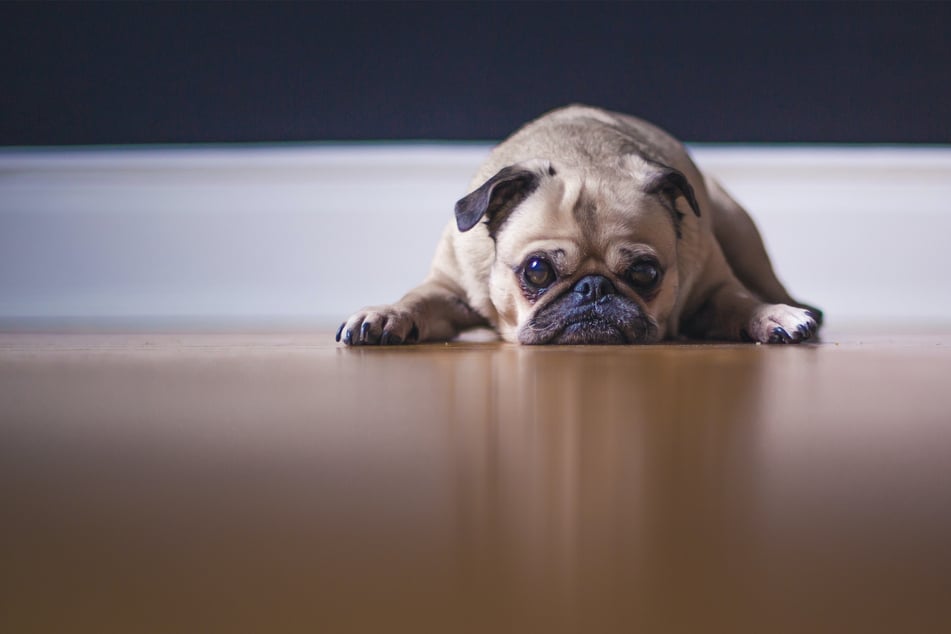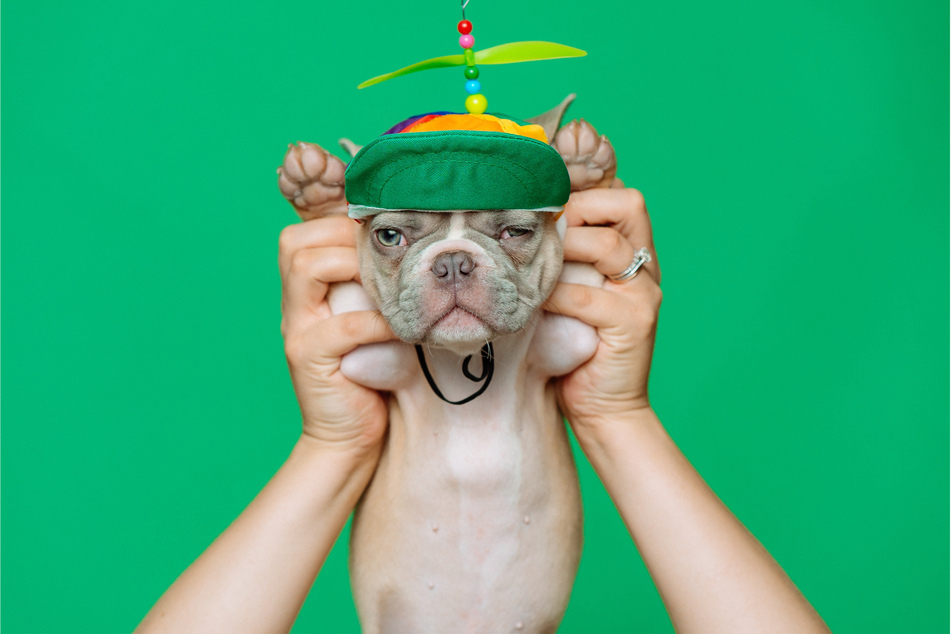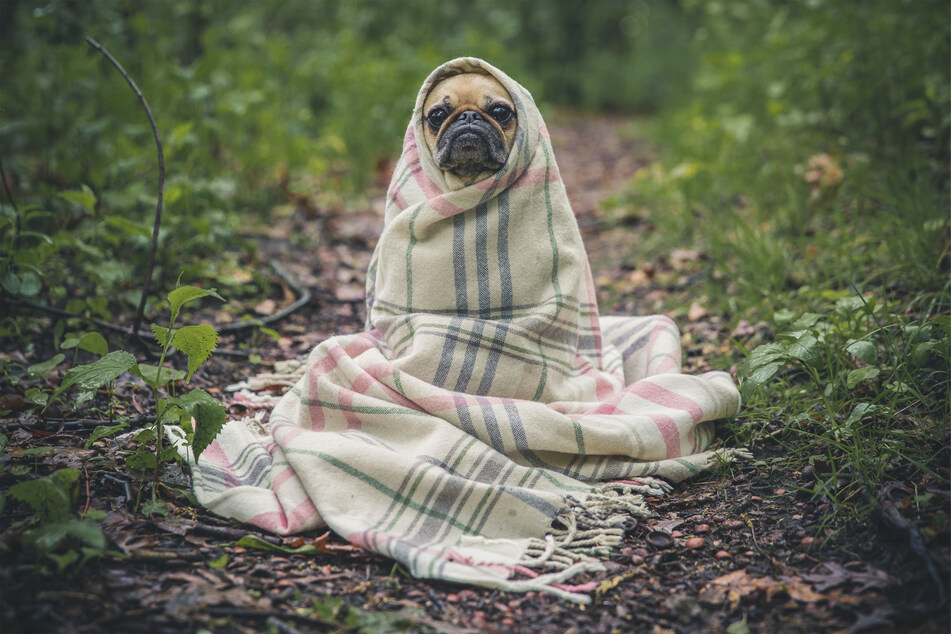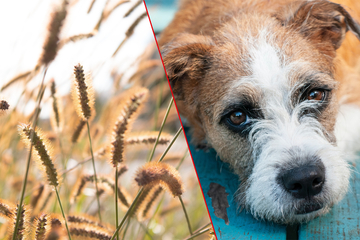Dog giardia: Symptoms and treatments
If your dog catches giardia, then it has been infested with a nasty parasite that will make life relatively unpleasant for the coming weeks. How do you treat the infestation, and what symptoms should you look out for?

Giardia is a nasty parasite that will cause a variety of symptoms in your dog and a host of problems that you'll need to deal with. It's important to act quickly, identify the symptoms, and work as efficiently as you can to get them sorted. To do that, you need to be aware of what to look out for.
In this dog guide, TAG24 will help you be prepared. What is giardia, and what are the symptoms of giardia in dogs? How do you treat giardia, and what else do you need to know about this nasty parasite?
What is the dog parasite giardia?
Giardia is a minuscule parasite that lives in soil, naturally grown foodstuffs, and water that has been contaminated with poop, and it can infect both animals and people. It is very common for it to target pets in particular due to their closeness to the ground and generally weaker immune systems.
If an individual or animal consumes giardia in any way, they can get something known as giardiasis as the parasite moves into the host's intestines. This causes a variety of minor to severe symptoms, but is generally not fatal to the person or animal that has been infested.
There is a particular risk of giardia in food and water sources that have been contaminated – even public swimming pools pose a minor risk. Giardia is a parasite that'll cause great discomfort, so it's best to always be safe.
Important: Please remember that we here at TAG24 are not veterinarians and are also not doctors. If you need proper medical advice, consult a medical professional, not a website.
Giardia dog symptoms
There are many nasty symptoms of giardia to look out for on a day-to-day basis. What's important is that you notice the changes in your dog's behavior early and respond quickly and efficiently, reducing the amount of time your pet has to spend suffering with discomfort and, in some cases, pain.
Here are the usual symptoms of giardia in dogs:
- Loose stool that often floats, and diarrhea
- Seriously increased and stinky gas, from both ends
- Severe stomach cramps
- Vomiting
- Constant need to drink due to the loss of fluids
- Constant feeling of discomfort
- Fever (rare)
Before moving forward with treatment, get your dog checked for giardia by a vet. You might have noticed that these are some pretty general symptoms, so it's best to be careful before doing anything without the guidance of a medical professional.
Giardia is not dangerous, and is unlikely to kill your doggo unless it has a pre-existing condition. Try to stay calm and act decisively when it's discovered.
Giardia dog poop
The most common and most severe symptom of giardia in dogs comes in the poop that it produces. Dogs that have giardia will take increasingly runny dumps until it is clearly diarrhea. Once it has reached this stage, the stools they produce will likely have also become rather greasy, and will probably float on the surface.
Also important is the fact that your dog's feces will carry giardia within it. That means any poops should be handled with a lot of care, making sure not to get any of it on your body and guaranteeing a thorough clean-up afterward. Additionally, the poop can infect water, so it shouldn't be left in the wild.
Poop might be a sensitive area to discuss, but it's going to be even more sensitive if giardia is left to run wild. The nature of your dog's feces is the best indicator you could ask for when it comes to identifying giardia.

Giardia dog treatment
Dogs with giardia will be prescribed medication for their infection, but their treatment will be more than just a few pills. What's most important in all of this is that you don't go with any kind-of home remedy or over-the-counter solution. This is a proper medical condition and should be treated as such.
After speaking with your veterinarian, make sure to separate all other animals from the vicinity of your doggo (as well as small children), and proceed with the recommended treatments. Make sure that while going through the process of healing, your dog is kept well hydrated and fed.
Here's how most giardia infections are treated in dogs:
- Prescription medicine will be provided to you by the vet, to be administered based on the instructions for whatever drug you have been given
- Plenty of water must be provided to increase the quantity of stools and reduce the risk of dehydration
- Eventually, the giardia should pass through your dog's system naturally, almost always via excretion
- Follow-up appointments will be booked to check on your dog's progress through the infection as well as its post-giardia recovery
If you are especially concerned and have no access to a veterinarian (at least for now), your best port of call is the CDC website, which gives a thorough rundown of what you need to know.
Can I get giardia from my dog?

It is extremely unlikely, but not impossible, for you to catch giardia from your dog. The most likely way you'll catch it is while dealing with your doggo's poop. As a result, if your dog has giardia it is best to always wear gloves when dealing with its feces and to always dispose of the stuff properly.
With that said, it's still probably best to keep your distance where possible. Again, it's unlikely to cause transmission, but it's a good idea to stop letting your dog lick you during such a period, and to limit your pats to the absolutely necessary. It's also a good idea to stop your dog from sleeping on the bed when it has giardia.
All in all, if you enact some pretty basic preventative strategies, you're almost certainly going to avoid a giardia infection. Just keep your guard up, and you'll be fine!
Giardia can be a nasty parasite if left untreated in dogs
Is there anything worse than an unhappy dog? Well, yes, an unhappy dog that's lost control of its potty training. Giardia does that to dogs, and it's both unpleasant for doggos and humans alike. While usually not fatal, if left untreated, things will get worse and worse and worse until unbearable. Get on it sharp and fast, and the process won't be too traumatic.
Take a moment to check your dog for symptoms at least once a week, pairing the process with your usual tick checks and flea checks, and keep your beloved pooch safe and sound.
Cover photo: Unsplash/Matthew Henry



